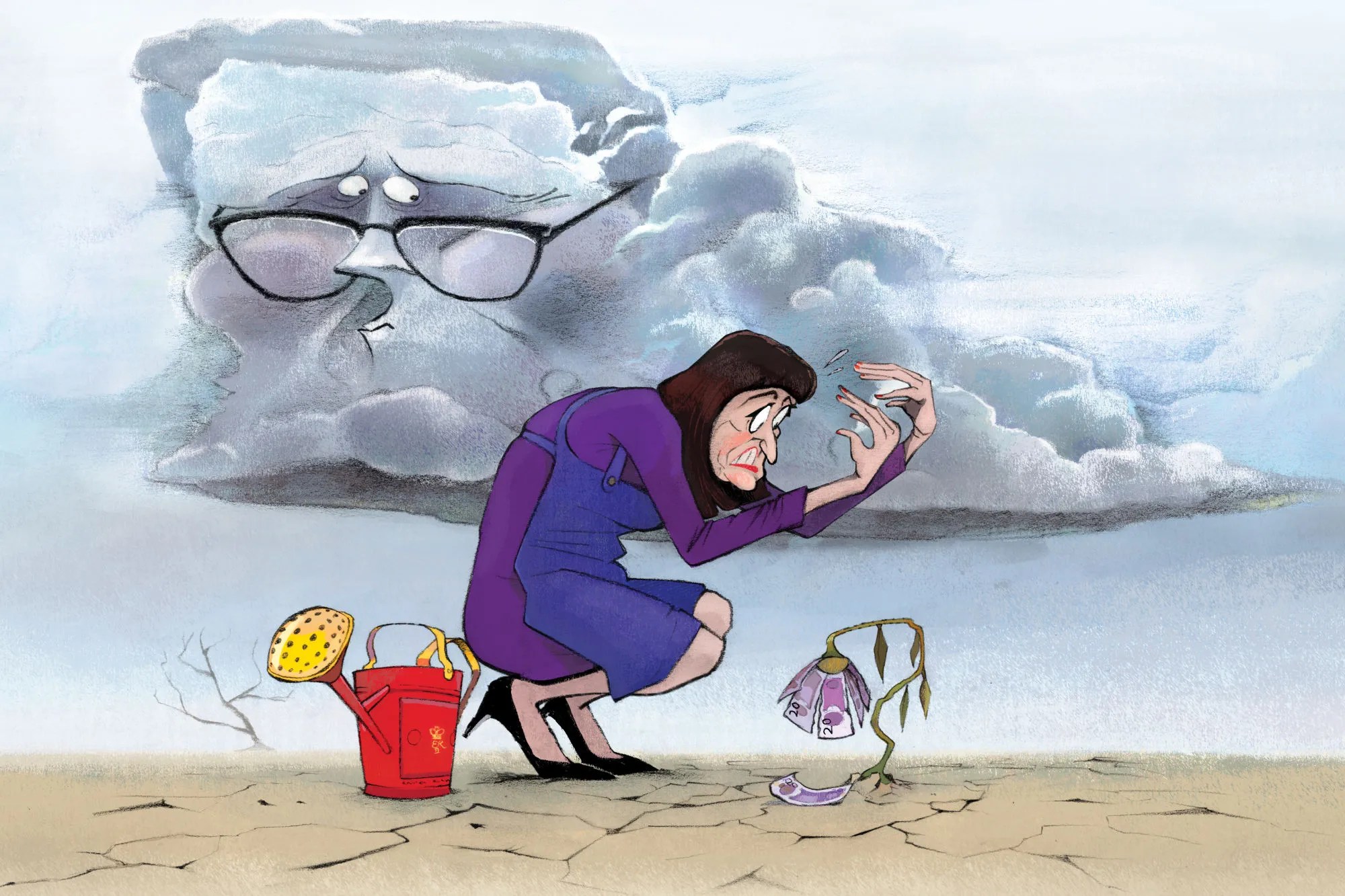It didn’t take long for the Commons to spot the glaring omission in Rachel Reeves’s boast that the Office for Budgetary Responsibility (OBR) has increased its growth forecast for next year and beyond. The OBR’s growth forecast for this year has just been halved relative to its estimate made last October, down from 2 per cent to 1 per cent.
Take into account the growing population and the OBR expects GDP per capita to rise this year by just 0.3 per cent. While the Chancellor wants us to concentrate on later growth forecasts, these do not negate the deterioration in our short-term prospects. Overall, the OBR judges the cumulative growth in potential output between 2023 and 2029 to be 0.5 per cent lower than it thought last October.
For a government which came to office nine months ago promising to make its priorities ‘growth, growth, growth’, this is a very serious matter. Moreover, the reasons the OBR makes for cutting its forecast have little to do with Donald Trump, tariffs or any other external factors which the Chancellor wants to blame.
One third of the reduction, it states, is down to ‘the lower growth in potential output dues to structural weakness in productivity’. The remaining two thirds, it adds, ‘reflects cyclical weakness due to higher interest rate and energy price expectations, rises in uncertainty and a fall in confidence.’
The OBR doesn’t quite say so, but why are businesses feeling less confident? Just listen to what they are saying about the impact of the National Insurance hike in the last Budget. Why have the expectations for future interest rates increased? Bond markets took a dislike to Reeves’s Budget just as they did to Kwasi Kwarteng’s mini-Budget in 2022. As for expectations over productivity, the government’s Employment Rights Bill is not exactly helping matters. It is going to make it more difficult for employers to dismiss under-performing employees.
Last October, the OBR’s analysis could have been said to be kind to the Chancellor. Not this one. There is another nasty lurking in the pages of its report. Real earnings, it forecasts, will grow by 1.4 per cent this year but will then stagnate in 2026 and 2027. If this actually happens it will mean once again employees will fail to see rising living standards for much of this Parliament – which could sound the death knell for Labour’s re-election prospects.
Neither does the OBR take kindly to the way the Chancellor dealt with them. Last summer, Reeves blamed her infamous £22 billion ‘black hole’ on the failure of the previous Chancellor, Jeremy Hunt, to provide the OBR with full information about the public finances. The OBR accuses Reeves though of being late in supplying her plans. Details of her benefits changes, it says, ‘were sent to us very late in the process, and late notice and incomplete analysis hampered our ability to reflect these measures in the process.’ It goes on to say that it has not been able to certify the costings of the government’s welfare policies, but will return to this matter in its next forecast. In other words, the OBR’s forecasts are reliant on an analysis from Reeves’ own staff which the OBR has yet to confirm is reasonable or otherwise.
For a Chancellor who tried to make so much of the OBR’s sober judgement last July, this is not good. A cloud hovers over even the OBR’s revised forecast for economic growth.
Join our Coffee House Shots panel alongside special guests Lord David Frost and Lord Maurice Glasman, at Cadogan Hall on Thursday 27 Match at 7pm, to discuss the Spring Statement. Book now.









Comments